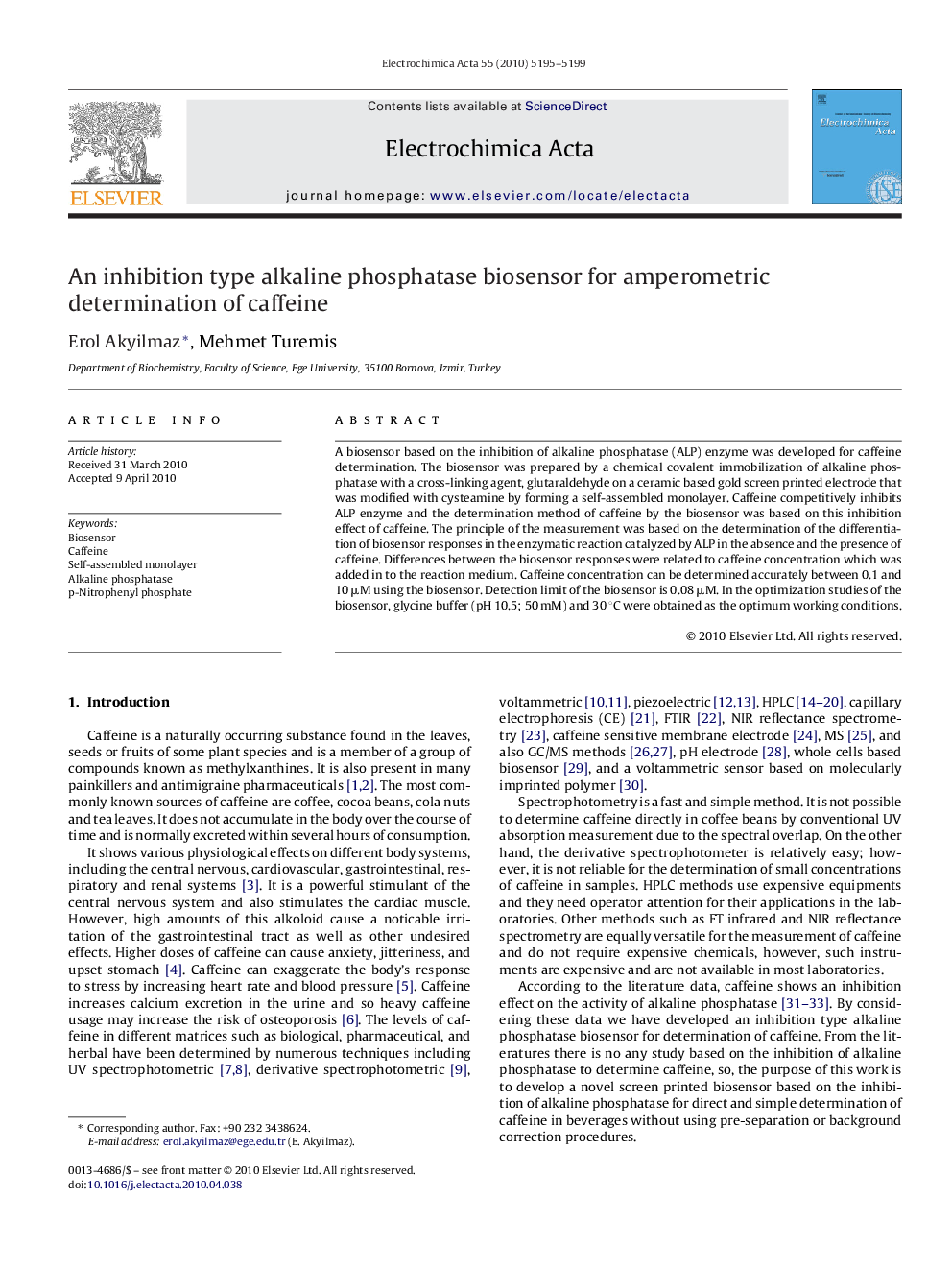| Article ID | Journal | Published Year | Pages | File Type |
|---|---|---|---|---|
| 192425 | Electrochimica Acta | 2010 | 5 Pages |
A biosensor based on the inhibition of alkaline phosphatase (ALP) enzyme was developed for caffeine determination. The biosensor was prepared by a chemical covalent immobilization of alkaline phosphatase with a cross-linking agent, glutaraldehyde on a ceramic based gold screen printed electrode that was modified with cysteamine by forming a self-assembled monolayer. Caffeine competitively inhibits ALP enzyme and the determination method of caffeine by the biosensor was based on this inhibition effect of caffeine. The principle of the measurement was based on the determination of the differentiation of biosensor responses in the enzymatic reaction catalyzed by ALP in the absence and the presence of caffeine. Differences between the biosensor responses were related to caffeine concentration which was added in to the reaction medium. Caffeine concentration can be determined accurately between 0.1 and 10 μM using the biosensor. Detection limit of the biosensor is 0.08 μM. In the optimization studies of the biosensor, glycine buffer (pH 10.5; 50 mM) and 30 °C were obtained as the optimum working conditions.
